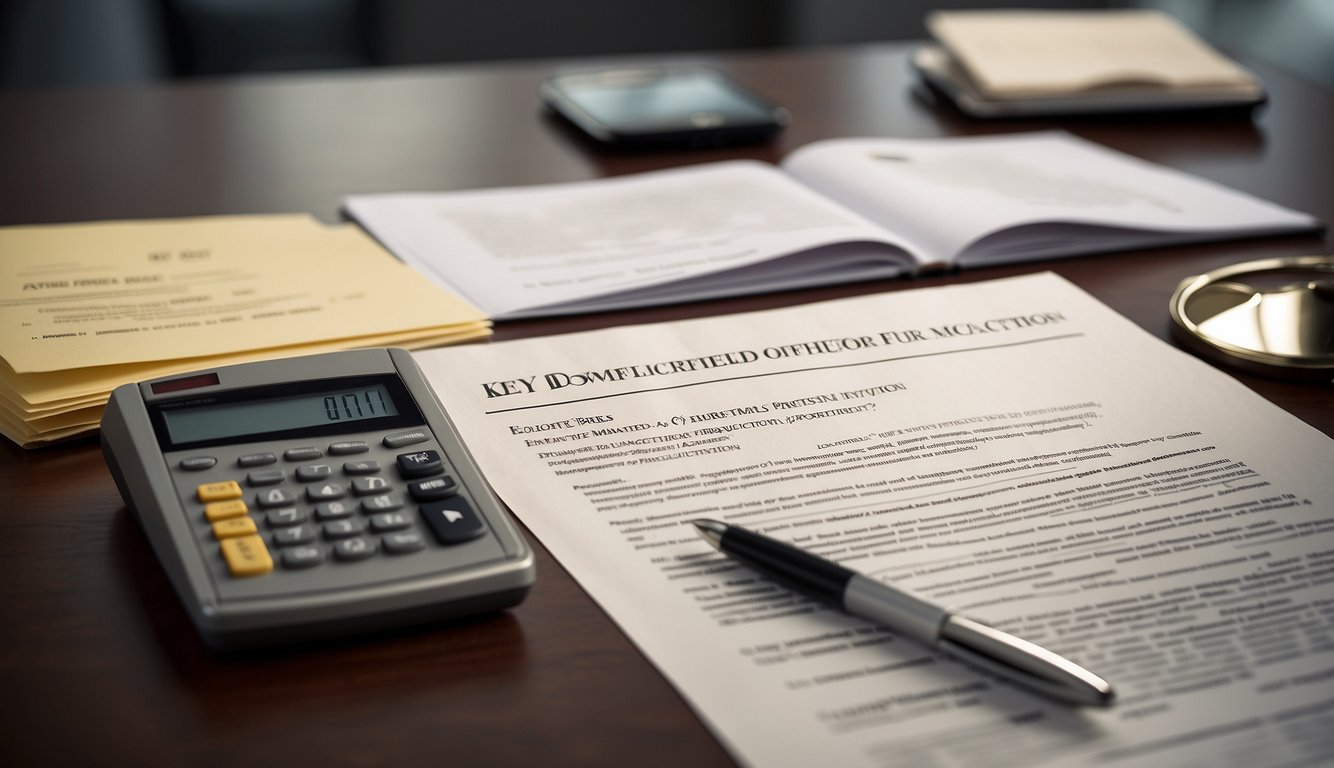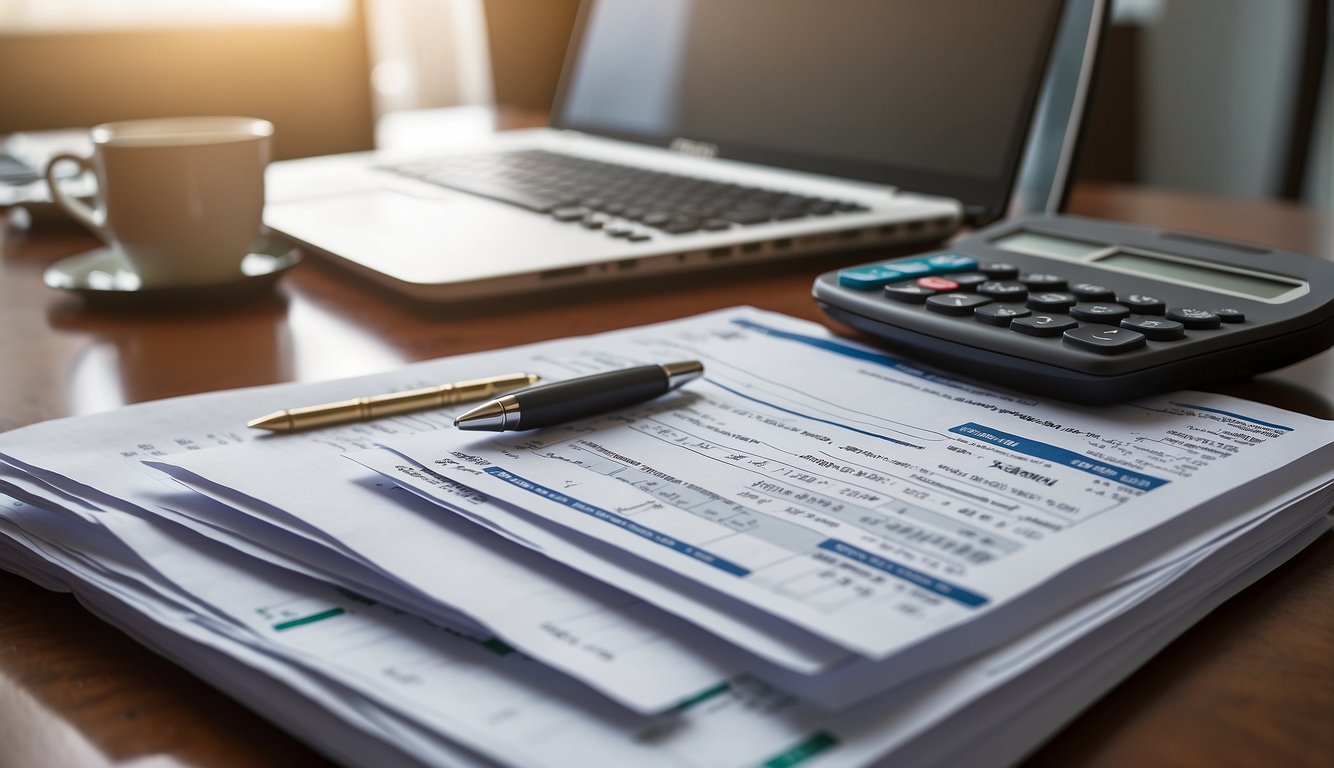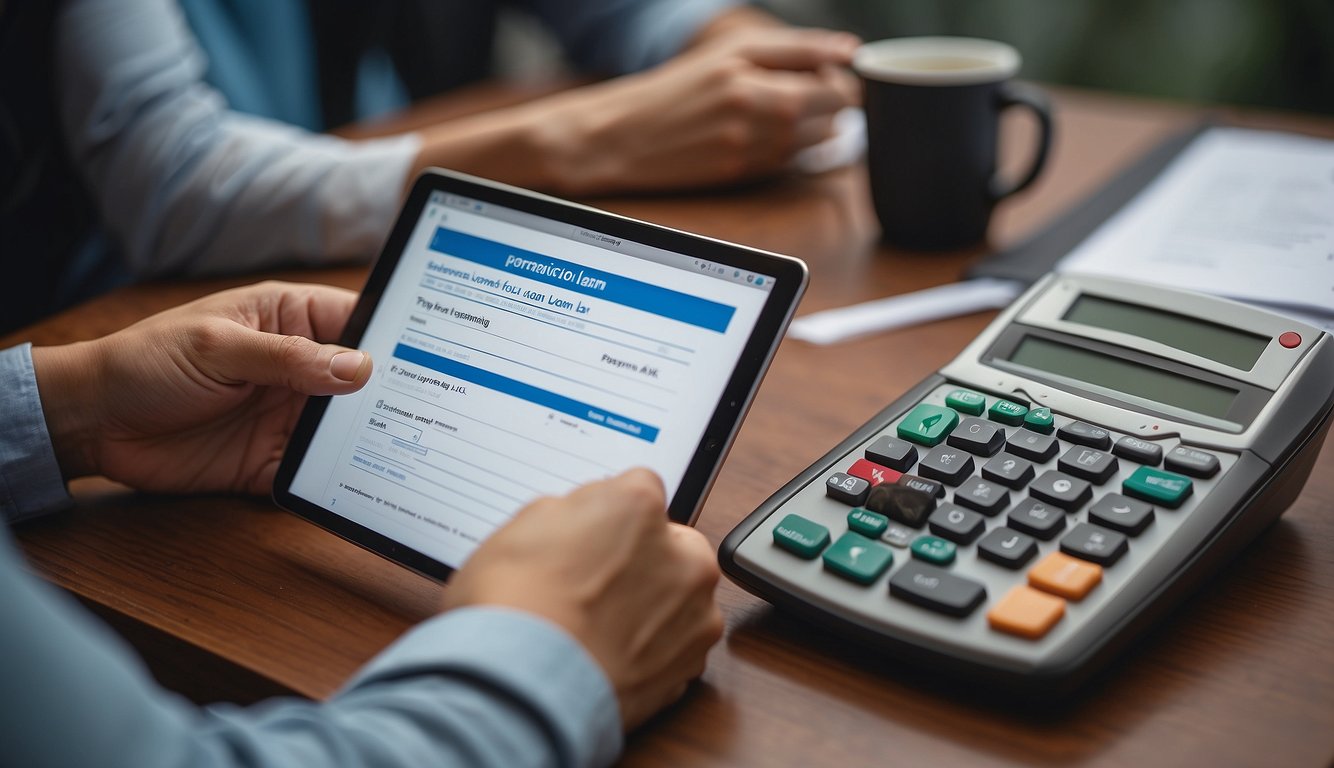If you’re a low-income earner in Singapore, you may be wondering if it’s possible to get approved for a personal loan. The good news is that it is possible, but the process can be challenging. In this article, we’ll explore the ins and outs of personal loans for low-income individuals in Singapore, including eligibility criteria, required documents, interest rates and fees, and potential obstacles you may face during the application process.

Personal loans are a type of unsecured loan that can be used for a variety of purposes, such as paying off debt, financing a home renovation, or covering unexpected expenses. In Singapore, there are several financial products available specifically for low-income individuals, including personal loans with lower interest rates and longer repayment terms. However, to be eligible for these loans, you’ll need to meet certain income requirements and provide the necessary documentation to prove your financial stability.
Key Takeaways:
- Meeting the income requirements and providing the necessary documentation are crucial to getting approved for a personal loan in Singapore as a low-income earner.
- While there are financial products available specifically for low-income individuals, interest rates and fees may still be higher compared to other loan options.
- It’s important to have a repayment strategy in place and to seek out additional financial resources and support if needed to manage debt effectively.
Understanding Personal Loans in Singapore

If you are a low-income earner in Singapore, you may be wondering if you can get approved for a personal loan. Fortunately, there are options available to you. In this section, we will discuss what personal loans are and the types of personal loans available in Singapore.
What Is a Personal Loan?
A personal loan is a type of loan that you can use for any purpose, such as paying for a wedding, consolidating debt, or making home improvements. Personal loans are typically unsecured, which means you do not need to provide collateral to get approved. Instead, the lender will look at your credit score, income, and other factors to determine if you are eligible for a loan.
Types of Personal Loans Available
There are two main types of personal loans available in Singapore: loans from banks and loans from licensed money lenders.
Bank Loans
Banks offer personal loans to low-income earners in Singapore. These loans typically have lower interest rates than loans from money lenders. However, banks may have stricter eligibility requirements, such as a higher minimum income or a good credit score.
Money Lender Loans
Licensed money lenders also offer personal loans to low-income earners in Singapore. These loans may have higher interest rates than bank loans, but they may be easier to get approved for. Money lenders may also be more flexible with their eligibility requirements.
In conclusion, personal loans can be a good option for low-income earners in Singapore who need to borrow money. Whether you choose a loan from a bank or a licensed money lender, it is important to shop around and compare interest rates and other terms before making a decision.
Eligibility Criteria for Low Income Earners

Getting approved for a personal loan as a low-income earner in Singapore can be challenging, but not impossible. Here are some of the eligibility criteria that lenders consider when evaluating your loan application as a low-income earner.
Minimum Income Requirements
One of the most important factors that lenders consider when approving a personal loan is your income. As a low-income earner, you may have limited options when it comes to personal loans. However, some lenders offer personal loans with low annual income requirements, such as OCBC Bank and HSBC. These lenders require a minimum annual income of S$20,000 and S$30,000, respectively.
Employment Status Considerations
Your employment status is another important factor that lenders consider when evaluating your loan application. If you are a Singapore citizen or permanent resident, you must have a SingPass account to apply for a personal loan. Foreigners must have a valid employment pass and a minimum annual income of S$40,000 to be eligible for a personal loan.
Credit History and Credit Score
Your credit history and credit score are also important factors that lenders consider when evaluating your loan application. If you have a poor credit history or a low credit score, you may have difficulty getting approved for a personal loan. However, some lenders offer personal loans for low-income earners with bad credit or no credit history. These lenders may charge higher interest rates and fees, so it’s important to compare your options carefully.
In summary, getting approved for a personal loan as a low-income earner in Singapore can be challenging, but not impossible. Lenders consider factors such as your income, employment status, credit history, and credit score when evaluating your loan application. It’s important to compare your options carefully and choose a lender that offers the best terms and conditions for your needs.
Key Documents Required for Loan Application

When applying for a personal loan, there are certain documents that you will need to provide to the lender. These documents help the lender assess your eligibility for the loan and determine the amount of money that they are willing to lend you. Here are some of the key documents that you will need to provide when applying for a personal loan for low income in Singapore:
Proof of Income and Employment
One of the most important documents that you will need to provide when applying for a personal loan is proof of your income and employment. This may include payslips, bank statements, income tax statements, or your employment contract. These documents will help the lender determine whether you have a stable source of income and whether you are able to repay the loan.
Identity and Residence Verification
You will also need to provide proof of your identity and residence when applying for a personal loan. For Singapore citizens, this may include a copy of your NRIC (front and back). For Singapore permanent residents, you will need to provide a copy of your NRIC (front and back) as well as a copy of your valid passport. You may also need to provide proof of your residence, such as a utility bill or tenancy agreement.
It is important to note that the specific documents that you will need to provide may vary depending on the lender and the type of loan that you are applying for. Some lenders may require additional documents, such as proof of your assets or liabilities. Therefore, it is important to check with the lender in advance to ensure that you have all of the necessary documents before submitting your loan application.
Providing the required documents in a timely and accurate manner can help speed up the loan application process and increase your chances of being approved for a personal loan.
Financial Products for Low Income Individuals

If you’re a low-income earner in Singapore, you may think that getting approved for a loan is impossible. However, there are financial products available that cater specifically to your needs. In this section, we’ll explore some of the loan options available to you.
Bank Loans Versus Moneylenders
When it comes to loan products, you have two main options: bank loans and moneylenders. Bank loans are generally more affordable, with lower interest rates and longer repayment periods. They also come with more stringent eligibility criteria, which may make it harder for low-income earners to qualify.
Moneylenders, on the other hand, are more flexible when it comes to eligibility criteria, making it easier for low-income earners to get approved. However, they also come with higher interest rates and shorter repayment periods, which can make it harder to keep up with repayments.
Specialised Loan Offers for Lower Income
If you’re a low-income earner, you may be eligible for specialised loan offers that cater specifically to your needs. For example, the POSB Personal Loan is designed for individuals earning at least S$20,000 annually, making it a great option for low-income earners. It also comes with a range of features, such as a fixed monthly repayment amount and a choice of repayment periods.
Another option is the Standard Chartered CashOne Personal Loan, which offers loan amounts of up to four times your monthly salary. It also comes with competitive interest rates and flexible repayment periods, making it a great option for low-income earners.
Finally, the OCBC ExtraCash Loan is another great option for low-income earners. It offers loan amounts of up to six times your monthly salary, with flexible repayment periods of up to five years. It also comes with competitive interest rates, making it an affordable option for those on a tight budget.
Overall, while getting approved for a loan as a low-income earner may be challenging, there are loan offers and products available that cater specifically to your needs. By exploring your options and choosing the right loan product for your needs, you can get the financial assistance you need to achieve your goals.
Interest Rates and Fees Overview

If you’re looking for a personal loan in Singapore, interest rates and fees are important factors to consider. Here’s what you need to know about interest rates and fees when it comes to personal loans for low income earners in Singapore.
Comparing Interest Rates Across Lenders
Different lenders offer different interest rates, so it’s important to shop around to find the best deal. Some lenders may offer lower interest rates for low income earners, so be sure to check if you qualify for any special rates.
For example, the POSB Personal Loan offers interest rates as low as 3.88% p.a. for low income earners with a minimum annual income of $20,000. Meanwhile, Standard Chartered CashOne Personal Loan offers interest rates as low as 3.48% p.a. with a $199 processing fee.
Additional Charges to Consider
In addition to interest rates, there may be other charges to consider when taking out a personal loan. One common charge is a processing fee, which is usually a percentage of the loan amount. Some lenders may waive the processing fee for low income earners, so be sure to check if you qualify for any waivers.
It’s also important to be aware of any other charges that may apply, such as late payment fees or early repayment fees. These charges can add up quickly, so be sure to read the fine print before signing on the dotted line.
Overall, personal loans can be a useful tool for low income earners in Singapore who need to borrow money. By comparing interest rates and fees across lenders, you can find an affordable interest rate and avoid any unnecessary charges.
Loan Application Process for Foreigners and Singaporeans

If you are a low-income earner in Singapore, you may be wondering if you are eligible for a personal loan. The good news is that you can apply for a personal loan in Singapore as a foreigner or a Singaporean citizen. However, the application process and eligibility requirements may differ slightly depending on your status.
Steps for Singaporeans
As a Singaporean citizen, you will need to provide proof of your income, which can include payslips, tax assessments, or bank statements. You will also need to have a good credit score, as this will affect your eligibility for a loan. To improve your chances of being approved for a personal loan, you should compare different lenders and their interest rates, fees, and repayment terms.
Once you have found a lender that you want to apply with, you will need to fill out an application form and provide the required documentation. This may include your NRIC, proof of income, and proof of address. Some lenders may also require you to provide additional documentation, such as your employment contract or CPF statement.
Specific Requirements for Foreigners
If you are a foreigner in Singapore, you will need to meet certain eligibility requirements to be approved for a personal loan. These requirements will vary depending on the lender, but in general, you will need to have a valid work permit or employment pass, and a minimum income of around SGD 30,000 per year.
In addition to these requirements, you may also need to provide additional documentation, such as your passport, employment pass, and proof of income. Some lenders may also require you to have a local guarantor, who will be responsible for repaying the loan if you are unable to do so.
Overall, the loan application process for both Singaporeans and foreigners is relatively straightforward. By comparing different lenders and their eligibility requirements, you can find a loan that suits your needs and budget.
Potential Obstacles and Solutions

Common Reasons for Application Denial
Applying for a personal loan can be a daunting task, especially if you have a low income. One of the most common reasons for loan application denial is not meeting the eligibility criteria. Lenders usually have a minimum income requirement that you need to meet to be eligible for a loan. If your income falls below this threshold, your application may be denied.
Another reason for loan application denial is a poor credit history. Lenders will check your credit score to determine your creditworthiness. If you have a low credit score, it may be an indication that you have a history of late payments, defaults, or bankruptcy. This could make lenders hesitant to approve your loan application.
Strategies to Increase Approval Chances
If you have a low income, there are still strategies you can use to increase your chances of loan approval. One way is to provide proof of income from alternative sources. For example, you could provide evidence of rental income, government benefits, or child support payments. This can help to supplement your income and make you a more attractive candidate for a loan.
Another strategy is to provide alternative documents to support your loan application. For example, you could provide evidence of your savings, investments, or assets. This can help to demonstrate your financial stability and make you a more reliable borrower.
In addition, you could consider applying for a loan with a co-signer. A co-signer is someone who agrees to take responsibility for the loan if you are unable to make payments. This can help to reassure lenders that they will be able to recover their money if you default on the loan.
Overall, while there may be potential obstacles to obtaining a personal loan as a low-income earner, there are also solutions that can increase your chances of approval. By providing alternative sources of income, alternative documents, or applying with a co-signer, you can demonstrate your creditworthiness and financial stability to lenders.
Repayment Strategies and Managing Debt

Setting a Realistic Repayment Schedule
When considering a personal loan for low income in Singapore, it’s important to set a realistic repayment schedule that aligns with your financial capabilities. By carefully assessing your income and expenses, you can determine a manageable repayment plan that ensures you can comfortably meet your obligations without overburdening yourself. It’s crucial to be honest with yourself about what you can realistically afford to repay each month, taking into account your existing financial commitments.
Avoiding Default and Managing Existing Debt
Defaulting on a loan can have serious consequences, so it’s vital to manage your existing debt responsibly. Prioritise making timely repayments to avoid defaulting, as this can negatively impact your credit score and financial well-being. If you’re struggling with multiple debts, consider seeking advice from a financial advisor or exploring debt management programmes that can help you consolidate and efficiently manage your borrowings. By taking proactive steps to manage your debt, you can work towards a more stable financial future.
Additional Financial Resources and Support

If you are a low-income earner in Singapore, you may find it challenging to get approved for a personal loan. However, there are several government assistance programmes, non-profit organisations, and community help available to provide additional financial resources and support.
Government Assistance Programmes
The Singapore government provides various financial assistance programmes to support low-income individuals and families. These programmes include:
- ComCare Fund: This fund provides sustainable funding for low-income Singaporeans. You can apply for ComCare assistance if you are facing financial difficulties due to unemployment, illness, or other reasons.
- HDB Financial Assistance Measures: If you are an HDB flat owner facing financial hardship, you can defer or reduce your monthly loan instalments for six months.
- Medifund: This fund provides financial assistance to Singaporeans who cannot afford their medical bills.
- Workfare Income Supplement (WIS): WIS is a scheme that provides cash and CPF contributions to low-wage workers to supplement their income.
Non-Profit Organisations and Community Help
Apart from government assistance programmes, there are several non-profit organisations and community help available to support low-income individuals and families. These organisations include:
- One Singapore: One Singapore provides emergency funds to low-income individuals and families facing financial difficulties.
- Agency for Integrated Care Singapore (AIC): AIC provides financial support to seniors and individuals with disabilities.
- Licensed Money Lenders: Licensed money lenders offer personal loans to low-income earners who cannot get approved by banks.
- CPF Contribution: If you are a low-income earner, you can apply for CPF contribution relief to reduce your CPF contribution.
Overall, there are several financial resources and support available to low-income earners in Singapore. By taking advantage of these resources, you can improve your financial situation and get the help you need to achieve your goals.
Frequently Asked Questions

What’s the simplest way to secure a personal loan with a modest income in Singapore?
If you have a modest income, getting a personal loan in Singapore can be challenging. However, some banks and financial institutions offer loans with lower income requirements. Standard Chartered and POSB are two of the banks that provide personal loans with a minimum annual income requirement of S$20,000. You can also consider licensed moneylenders, but be sure to check their interest rates and terms before taking out a loan.
Can I snag an instant cash loan in Singapore without heaps of paperwork?
Yes, you can get an instant cash loan in Singapore without heaps of paperwork. Some banks and financial institutions offer instant approval and quick cash disbursement, even if you are not an existing customer. Standard Chartered is one of the best personal loan providers for low-income Singaporean citizens or PRs as it offers instant approval and very quick cash disbursement.
Is there a chance to get a personal loan if I’m currently out of work in Singapore?
If you’re currently out of work in Singapore, it can be difficult to get a personal loan. Most banks and financial institutions require proof of income, which means you may not qualify for a loan. However, you can consider other options such as licensed moneylenders, who may be more flexible with their requirements.
How might one obtain a personal loan when traditional lenders turn you down?
If traditional lenders turn you down, you can consider other options such as licensed moneylenders or online lenders. These lenders may be more flexible with their requirements and offer loans to individuals with lower credit scores or incomes. However, be sure to check their interest rates and terms before taking out a loan.
Are there any personal loan options available for folks with lower incomes through NTUC Income?
NTUC Income offers personal loans with a minimum annual income requirement of S$18,000. However, be sure to check the interest rates and terms before taking out a loan. NTUC Income also offers a debt consolidation plan for individuals with multiple outstanding loans.
What are the prospects of getting a personal loan from CPF without showing income proof?
You can get a personal loan from CPF without showing income proof if you have sufficient CPF savings. However, the amount you can borrow depends on your CPF balance and the type of loan you are applying for. Be sure to check the interest rates and terms before taking out a loan.

